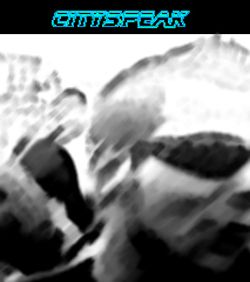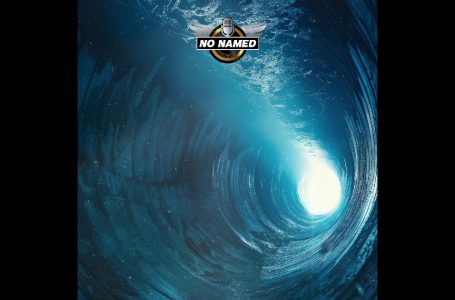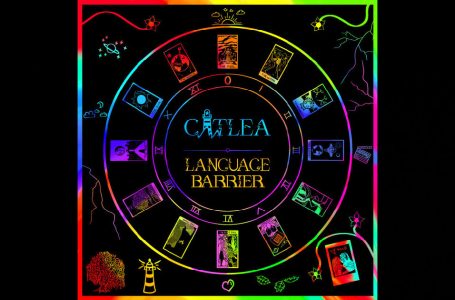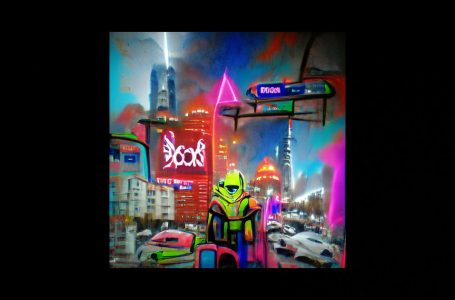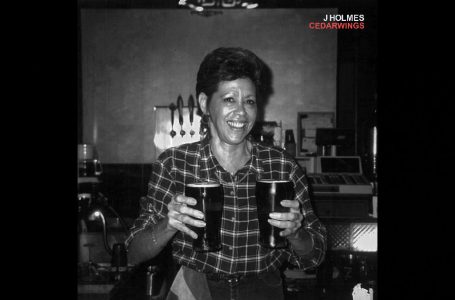CitySpeak
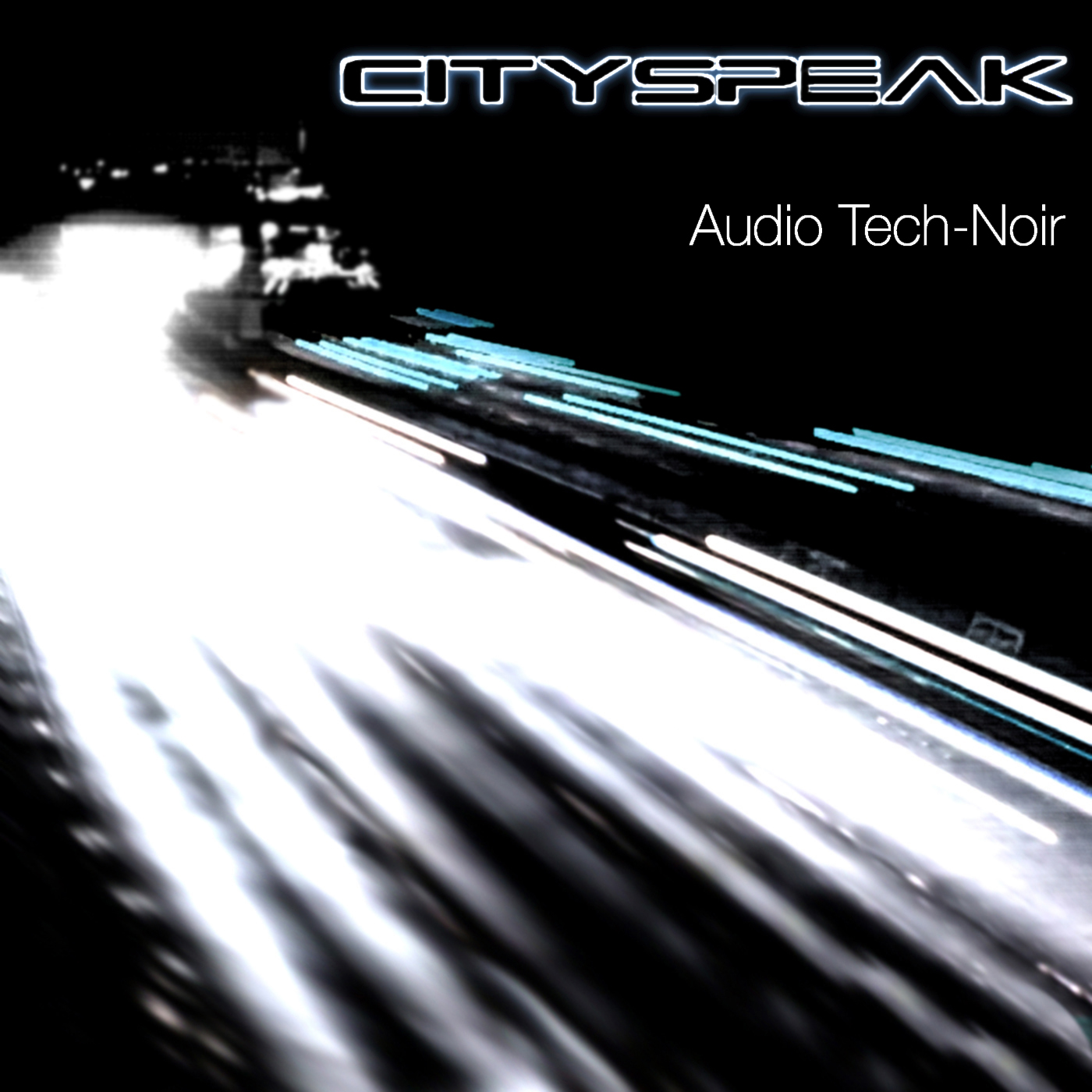
I’d have to line up the text side-by-side to see who really went on longer during this interview. HOW AWESOME IS THAT? I’ll fill that blank in for ya – EXTREMELY! I’d like to introduce you to Jesse from CitySpeak – a one man army of electro and a truly dedicated and passionate fan of all things music.
Beginning this interview, I knew very little about Jesse and his work in CitySpeak but through editing and now publishing this interview, well, you’ll see…you’re really going to get to know him well through this interview. I might have finally found my ideal match for musical conversation – Jesse has left nothing off the page in this interview; all questions are answered with genuine thought and the effort put into those answers can be clearly read.
After learning all about him, I think it will be just as clear to you as it has become to me – Jesse is just not the type to ever put in less than 100% of his heart and soul into anything he puts his mind to. In his music he found a way to get the most out of the equipment he uses to put forth an incredible result. I believe he employed the same strategy when tackling this interview.
For you fans of CitySpeak, there is an INCREDIBLE amount of information and thoughts from Jesse on not only his music, hardware and software but also how his life intersects with this passion for creation and how these songs come to life…or find their end. And guess what!?! For you NEW fans of CitySpeak…that’s right, you guessed it…there is an INCREDIBLE amount of information at every turn for you, just like there was for me.
I’d like to thank Jesse once more from myself personally for truly putting something out there that any music fan would want to read. You have an incredible insight into where the state of music is at and your statement of “I want fans, not customers” will continue to impact me for as long as I do this myself.
Cause that’s what it’s all about, right there in one quick statement. Jesse! We could have saved ourselves a LOT of typing brother!
Ha. Wouldn’t have had it any other way. Cheers brother. Enjoy everyone!
CitySpeak Interview
SBS: Jesse! I have got a LOT to ask you about my friend. The music you’re making in CitySpeak is incredibly relevant, not just to music in general – but to myself on a personal level. We’ll get in to all that in a bit, right now I just want to say thanks for doing this interview with us & get some of the “getting to know you” intro-stuff on this page so we can talk some music! First up, let’s talk about where you’re living. You’re in New York – a state both glamorized and villainies by the media at different points throughout our history, but also a state known for being cutting-edge in its musical taste. At least that’s what we get as an impression through our internet & TV screens here in Canada. What’s it really like for your electronically-infused music in the state of New York? The clubs would love this for sure – but how much of this music can you find outside of the club? Is there room for your music in New York?
Jesse: To be perfectly honest, I have had a difficult time solidifying a fan-base in New York (not including NYC, the city itself; however I live in the capital region). My local region has a much larger devotion to hip-hop and hardcore music. Which I have nothing against, it just makes it difficult to market or promote my kind of off-brand experimental electronic music to people in my immediate area. I’ve had much more success in the UK and other territories.
In terms of ‘club tracks’, you may have heard a few of my tracks that could be “club-worthy”… but in general due to way I strive to produce interesting and unique tracks that don’t simply emulate what one could simply turn on the radio and hear, I’ve also had hard time getting my music into DJ rotations.
It’s honestly tough when your music is unique and or/experimental.
SBS: I am only guessing here brother, but reading between the lines of your bio suggests that you’ve learned how to write and create this music all on your own. There’s a ton involved in making electronica – especially the incredible stuff you’re capable of. No bullshit man, I’ve been listening all day long and tracks like “Omega” and “C-Beams” kick an immeasurable amount of ass in my books. So tell us a story here Jesse…we like stories…. I want to know about your progression through learning your craft. There’s a little in that bio, but I want to know more. You must have had to teach yourself, or have help learning some pretty intense equipment and programs to make this, how did it all get to where it is today?
Jesse: (BTW – You asked for a long story, so be prepared!) My love for all types of music started at a very young age. Having been born in the early 80’s, I got to listen to a lot of new wave, and play a lot of old school 8-bit games, and I truly loved the synthesizers of New Wave, and the unique music of old video games. There were times (in Metroid for NES, as an example), where would pop the cartridge in (after blowing in it several times of course) and simply listen to the music play, and not actually play the game itself. This inspiration could easily be heard in some of my older music (which was produced under a different name than CitySpeak, and none of it is available online unfortunately… It’s just not as well produced, and really doesn’t represent my current level of skill).
In terms of learning my craft, I actually did start outside of electronica/production/etc. My first instrument was actually a Saxophone. I played that for a few years, and moved on to the Piano. I took 3 years of Classical Piano, and 1 year of Jazz Piano. In the midst of all of that I also taught myself to play guitar. This all helped me get a firm grasp on music theory, chords and their progressions, orchestration, and composing. I’ve composed several songs for the Piano for example.
However, in despite having learned all these instruments, reading sheet music, composing, etc. my true love of atypical, and unique music always had me gravitating towards the unique sounds that came from synthesizers, and production software. It is (in my opinion) amazing what one can do as a producer. A live band can (of course) often be amazing, however the vast amount of control a producer has over their synths and sounds and effects, gives them the ability to create music that normal instruments simply aren’t capable of
Also – as an aside, I know that there are several misconceptions out there when it comes to electronic music production. Whether people simply refer to it as ‘techno’, or ‘dance music’ , I’ve heard several people literally make the assumption that the entire production process only requires someone to turn a PC on, click a button that says “make song”, and move on to the next one. This is (of course) in no way accurate. Having been exposed to several live instruments, orchestration, composing, real recording, etc. I can honestly say that producing a quality, properly mastered electronic song requires one to have a very strong and broad understanding of music, music theory, percussion, timing, and of course be at least moderately tech savvy. A solo producer has to have a grasp on every aspect of the track to properly produce it, otherwise the song will inevitably result in a simple boring loop. These aspects include drumming/percussion (which in turn requires a firm grasp on timing, and synchronization), chords, chord progression, recording, mixing, applying the appropriate effects (such as reverb, phasers, flangers, etc), mastering (including properly setting all levels). In addition to all of this, it’s not simply a matter of dropping samples into a sequencer and hitting ‘record’. A true producer will also (in my opinion) create their own synths, and other unique sounds that will let people know they put real effort into producing something original.
With all that being said, my first exposure to this type of music production was when I was still in High School. As part of a year-long project, everyone in my class (this was in 2001) was expected to come up with an idea/goal (literally anything) and follow through with it. My idea/goal was to learn production software (at the time Fruity Loops version 2 or 3), and produce an entire album by the end of the year, and I did. This part (the software production) I did teach myself, and I enjoyed it greatly. This continued on throughout college, and had always been a side hobby until last year when I decided to get serious about it, and I created CitySpeak. With CitySpeak I strive to create some of the most unique electronic music available. This isn’t my way of trying to be avant-garde, or pretentious. I just feel that most electronic (most recently dubstep and mainstream dance) musicians create a track (or pay a beat maker to do it for them), and then have about 9 variations of the exact same song throughout the remainder of the album. As you likely know by now, no 2 of my songs song alike, some of them even sound as if they’d been created by separate people. I combine that goal (to consistently remain unique and interesting) with an additional simple goal – which is a personal one, and it’s the need to produce music that I would sit down, listen to, and enjoy, and never get bored doing so.
SBS: What’s the secret anyway? Is it in the production? The song-writing and assembly? Knowing your equipment and how to get the maximum out of it? You’re making some fantastic textures and truly wicked sonic adventures – you’re making music that can take people somewhere in their MIND. What’s the recipe man?
Jesse: It’s truly different for each track. Some songs I begin by writing music, and I typically spend hours or days trying to find the exact placement for each individual note, so that it sounds perfect (to me). Other tracks I begin by working with a synth. I’ll have it set to one of my tracks, and Ill begin modifying it heavily, trying to make it sound like something I personally haven’t heard in another song, so as to keep my music unique. Then I do it again. Creating another unique synth that not only sounds completely unique, but melds perfectly with the first synth I created; and from there I will then use that newly created synths and begin writing music for them.
Having been inspired by (as I said) the 80’s, I of course love several layers of synth. However I also love big stadium sounds that give the songs a larger more epic feel, and I go out of my way to make the synths feel as if they’re not just laying right there on the tip of your headphones/speakers, but are, instead, coming from somewhere else, like they’re floating inward from somewhere in the distance, outside of the track itself.
It’s one thing to take 3 or 4 synths, put them in the same key, and apply them to separate tracks within your sequencer. But I need these synths to feel as if your listening to the song, and they suddenly appear in your mind as if from space, or a dream. I know that all sounds strange, but I hope that’s how people feel when they hear some of my music, even if they don’t realize it.
Again – That being said, to create these layered textures, have them sound fluid and the exact way I want them to, a solid understanding of your hardware and software is a must.
SBS: Tell me about WHY this genre of electronic music speaks to you personally.
Jesse: I think I briefly touched upon this in my verbose story in one of the earlier questions. But 80’s/videogame/sci-fi inspiration aside, I honestly just love what you can do with electronic music. With the proper samples or fellow musicians you can of course create traditional music, but you can also go so much further. You can produce music that sounds otherworldly, inspirational, and personal all at the same time. I’ve had people listen to some of my songs and respond as if (despite it being instrumental) the song was written specifically for them, simply because of the way it made them feel.
While I understand a lot of my more experimental music requires the listener to have an open mind, and go out of their way to try and understand what I’m trying to accomplish with the song; those willing to give these ‘stranger’ tracks that I’ve produced multiple listens frequently find themselves understanding, and appreciating what it is I’m trying to do. And with that understanding come an appreciation for the song itself.
What it boils down to is simple. I love having the ability to compose music that can be so “out there”, or so original sounding, that when listened to, it causes the listener (whether they enjoy it or not) to wonder why they’ve never heard anything like this before; for better or worse
SBS: I’m definitely interested in your perspective regarding the people that argue that “music” can only exist with drums, bass, guitar – you know, the plugged-in-purists. My own music largely falls into this particular genre of yours, and I know what I would say to validate the existence of electronic music BEING music – but what would you say Jesse? Just because it’s not “plugged-in” doesn’t mean it’s any less valid or real does it?
Jesse: I’ll expand upon the large paragraph I wrote above that addressed this.
Music is, without question, a form of art. Art is 100% subjective. There are a lot of purists out there (many of whom I know, have worked with, and consider friends) that simply feel that without having sat down, guitar (for example) in hand, physically strumming away with that instrument, you aren’t a musician. I believe part of this antagonistic attitude towards electronic music could have a lot to do with the fact that a good, legit producer is capable of so much more than 1 musician with 1 instrument in hand. I can write a song, no different than any other musician, play it live with a midi keyboard, or manually place the notes within my sequencer, and have my synthesizer heavily modified to sound like a guitar. Now I can hit play, and have a fluid song, playing seamlessly, without me doing anything (at that point) and you’ll hear guitar notes strumming along as if I were actually a guitar player (all without me ever having to touch a guitar or learn how to play one). Of course, without at least a basic understanding of notes, keys, chords, chord progression, your song most likely won’t sound good, but with that understanding, you can literally produce a guitar track, a drum track, etc. without ever having to touch or learn any of those instruments directly.
I believe that is specifically why so many purists believe that electronic music production is an easy way out for people who don’t have (in their opinion) the ability to learn to perform what they consider to be real music. Going back to my first sentence however; music is art, and art is subjective. Is music NOT music if it’s played poorly? If I take a paper bag, fill it with coins, and shake it around at a random tempo, is that not music? I think the real answer here is simple; If you start with nothing, take whatever steps you see fit, and then end up with a song you created from scratch (good or bad), the means through which you reached the creation of that song is truly irrelevant. I’ve seen some of the world’s greatest, “master class’ guitar players use their guitar as a percussion instrument. That isn’t considered a slight towards actual drummers/percussionists obviously.
In summary, (I know I have a tendency to ramble on a lot) I believe that if you create electronic music, you are a musician. If you play synthesizer, use a vocoder to sing, and just press one key that’s latched to arppegiate a synth until you choose to stop it, it doesn’t matter; you’re a musician. The software and hardware you use to produce electronic music are YOUR instruments. The purists that continuously refuse to accept that are either jealous of what a good producer is truly capable of, or are just stubborn individuals that will simply hold on to an old school mentality that will die off with them.
SBS: Define “cookie-cutter” electronica. Tell us about your mindset in staying authentic, but different from the rest. How do you achieve that balance without sounding like you’re trying too hard?
Jesse: I may have been a bit ‘harsh’ when I used the term ‘cookie-cutter’. I in no way want to diminish the effort that other producers put in to create their music. And to be perfectly honest, I frequently enjoy car rides with some of the music I’m about to bash playing loudly. I just get frustrated when there are so many new electronic fans out there, that jumped on board the second Skrillex, and similar musicians started creating ‘Dubstep’, which to me amounts to a collage of bass and chopped up sound effects with little to no melody, purpose (other than to cause a subwoofer to function at maximum power). Of course long-term electronic music fans should know that what Skrillex and his cohorts produce is in fact not ‘Dubstep’.. Dubstep originated years ago in the UK, and utilized Jamaican influenced rhythms and had nothing to do with what you hear when you type ‘dubstep’ into YouTube.
I tossed the term ‘cookie cutter’ out there specifically because you can listen to a lot of mainstream electronic music and they tend to have the same BPM, generic synths that are most often completely forgettable, and truly only exist to give musicians like Katy Perry or Lady Gaga something to sing and dance over while on stage. With regard to today’s “Dubstep”, every single song begins with a 20 second – 1 minute intro of irrelevant sound effects, movie samples, etc. and then comes the “drop”. We’re actually at the point where the song itself is often irrelevant, and people only gravitate towards those songs with the most intense ‘drops’. Once the drop is implemented, then come the synthesized growls, vocal chops, and bass.
I also understand that to have mass appeal, your music has to be somewhat ‘generic’ or ‘cookie-cutter’. Producing odd/atypical electronic music as a mainstream musician will surely alienate some of their fans, and hurt their sales, which for musicians as those listed above, is the primary goal when producing music. You can go back to the 90’s and listen to that era’s dance music, and what you have is 50-100 songs that (vocalist aside) sound nearly identical.
With regard to the music I produce, I’ve accepted that I will likely never reach a massive audience. My music is far too experimental at times, and people these days tend to avoid music they don’t immediately understand and feel comfortable with; which is truly unfortunate. I can’t compromise my vision in an attempt to make music that could be more popular, but doesn’t feel like CitySpeak.. If this were my fulltime job, that’d be a terrible business model obviously. However, I have the leeway to consistently produce music that feels true to my original vision. I stay authentic by only “officially releasing music that coincides with that vision. Without exaggerating I have over 800 demo’s that I’ve produced over the years, but so many of them are either TOO experimental, or simply sounded wrong to me. I try to maintain authenticity by honing my craft, focus on releasing tracks that fit the CitySpeak vision, and while some of my tracks will inevitably cross paths stylistically with another musician, I’d like to think that overall my tracks will typically be unique enough to stand out from the crowd. The way I avoid the balance, and avoid producing tracks that sound like I’m working too hard is sticking to the code above. So long as I produce the way I like to produce, release the tracks that feel like CitySpeak to me, they should never alienate or sound like I’m trying too hard.
SBS: You also reference that “cookie-cutter” electronic music occurring more commonly in today’s music. Why do you suppose that is? Obviously there’s still a WANT to make music for the people that might be making something boring, repetitive or just plain bad – I suppose the main problem is still the consumer/marketing aspect that many of these artists reach a level of celebrity that their music shouldn’t necessarily entitle them to…I don’t want to put words in your mouth brother, but is that more or less what you mean?
Jesse: This goes back to what I said previously, but you’re essentially correct. Generic music, regardless of genre will typically alienate the least amount of people, and earn the most amounts of plays. That’s not only a statement about our saturated, mismanaged music industry (mismanaged in that its existence is solely for profit, not for the betterment or expansion of our definition of music), but about the common consumer. Somehow we’ve reached a point where the average person turns on the radio, and the music they hear becomes the music they enjoy by default, whether this is learned behavior or not, it’s unfortunate. I (without exaggerating) listen to every genre of music other than Country. I don’t listen to the radio, but in the event I come across one, I hear rock songs that carry the same melodies and riffs as all the other rock tracks on the radio, dance songs that maintain the same beats as the other dance songs, and so on. I can go online, search for some obscure bands, and find some of the most unique amazing music, and yet it never reaches a massive audience because its unique, interesting, and actually good.
SBS: You are literally the first artist that I’ve ever seen post in their description the entire list of hardware and software you use to make your music. To me, from my outside perspective – this is incredibly inviting. To me it almost says, “Hey, this is what I use – you could do the same thing and make great quality electronica yourself.” Is it that black and white Jesse? I feel like it is – I feel like you’re inviting anyone and everyone that would want to do this to see that it can be done with minimal equipment and software and encouraging them to go for it themselves. But maybe I’m reading too much into it…I’ve had a lot of coffee this morning brother…
Jesse: I wouldn’t say that I’m specifically encouraging others to follow in my footsteps, though I frequently do tutor/mentor people who have an interest in getting started with the type of production I’m involved with. I just prefer people knowing that (while as I said, it’s still art, music, and I have nothing against it) I don’t simply sit here, click and drag some premade drum loops and synth riff samples, then hit export to mp3, post it online and talk about how unique and interesting I am. I do prefer knowing that my fans at least know I have a non-electronic musical background, I still play the piano and synthesizer whenever I can, and try to incorporate them into my music as well.
Since the most recent listing of hardware, I’ve even upgraded to an Audio box 1818vsl. Now I have my Roland SH-201, Korg R3 (w/ vocoder), MPC Beatpad (which is straight USB anyways), Taylor acoustic/electric guitar and my condenser mic all connected to the audiobox via stereo at the same time, which is then converted via USB and connected to my high-end PC. I’ve also acquired software that interprets each of the 8 stereo signals and converts them into 1 track, allowing me to record each instrument simultaneously, should I grow more arms or have one of my musician friends down to assist.
SBS: You do have a track with vocals up on Soundcloud, but largely it seems the CitySpeak project is instrumental. What does instrumental electronica allow you to say or express without words. What is the advantage in creating music in that particular genre – what freedoms does it come with?
Jesse: Instrumentals allow me the full control over what exactly I’m trying to say, without having to say it. I go out of my way to make my songs instill specific emotions into the listener. I’m not slapping notes together hoping they simply sound cool, I write the music the way I do intentionally, hoping to place the listener into a specific state of mind, sometimes positive, sometimes sad, depending on the goal/tone of my song. Either way I try to facilitate a connection between the listener and the song without having to use words to tell them what they should be thinking. I use melody, tone and notation deliberately, and the listener finds there way without requiring words to tell them how to get there.
On the other hand, I’ve heard from a lot of fans and listeners that some of my songs take them somewhere very specific and personal. Whether it be the melody, or the tone of the song, they’re mentally brought somewhere in their past, conjuring up memories (sometimes happy, sometimes sad). As such, these listeners now associate those songs with those memories, and build a genuine connection to my music. Knowing that I can produce a track without any actual vocal direction (for example Lady Gaga wants you to “just dance”, pretty straight forward), but still have the listener know what I’m trying to say, says a lot about my music ( I hope ). Then again not all my tracks are for everyone, some people tell me they just enjoy the beat, and ya know what, that’s perfectly fine with me too.
SBS: What I also liked to see was that you weren’t the electronica type to simply go on for 10-14 minutes per song with two-switches and a beat drop or two…maybe that’s what you meant by “cookie cutter…” Your tracks vary in length, originality and pulse; overall you seem to have an excellent grip on your songwriting and truly understand “when” a song is done. That’s not always easy for a solo artist to achieve – it’s almost like an art form in itself…to know when to cut yourself off creatively. How do you know when enough is enough?
Jesse: This is honestly something I’ve struggled with in the past. There have been times (example – C-Beams) where in demo stages, the 5-6 minute song was 10 minutes, because I got to the end of the song, and that simple melody that strums along with the deep/dark synth in the far background (which currently plays from roughly 5:00 – 6:18), I genuinely didn’t want to stop listening to it. It has one of those effects on me I described above, an emotional effect wherein I could probably sit there and listen to that melody for 10+ minutes. That’s when I remember my audience, and remember that they may not have that same connection that I do, and may want the song to end at some point. I’ve struggled on the flipside with my intros as well. When I began writing music, I had a tendency to have very long build-ups before any drums or additional synths kicked in. One of my true loves is a pretty synth melody without the need for drums to drive it forward. Again – I remember the audience, and acknowledge that a 1-2 minute trance-like synth melody intro has a huge potential to immediately turn them on to the next track, and not even get to the meat of my song.
So in terms of knowing when enough is enough, or too much is too much, it’s something I’ve taught myself over the last year or so, as it was honestly one of my biggest weaknesses. Sometimes I just don’t want some of my songs to end. Ill touch upon this a bit more when I discuss the status of the upcoming album.
SBS: Many electronica artists have (or like to THINK they do!) a signature style, or something that ties their sound in universally to their body of work, making it identifiable to their particular sound. Would you say there’s something like that in the music of CitySpeak? How would you say that we would know as listeners that we’re listening to a CitySpeak cut and not a track from anyone else?
Jesse: That’s an excellent question, and a very difficult one to answer. Specifically due to the nature of my ever-changing style. The thing is, while my tracks often vary stylistically, there are always certain things a vigilant listener can pick up on. Some examples:
– (with a few exceptions) I almost always introduce my songs by fading in a synth melody, light or dark toned depending on the mood of the song, and it usually gets complimented by an additional synth melody of the same tone 15 seconds in, then some bass synth and drums around 30 seconds. This isn’t a guaranteed formula, but I use it more often than not.
– I almost always use at least 1 synth, echoed clap or snare, or something that is straight out of the 80’s. Some melody’s themselves sound like they belong in a new wave song, sometimes just the synths themselves. But aside from my goals and visions, I also strive to recapture some of the better sounds of the 80’s/scifi/futurism in my music without having my music sound dated. It’s my attempt to take something dated, and make it modern.
– Lastly – My outro’s. This occurs more frequently than any other signature sound. I almost always cut the drums, fade the base, and slowly fade my songs out with what I consider to be the driving melody of the song.
SBS: If you could put your music specifically into the hands of another artist, producer or engineer – who would you want that to be and why?
Jesse: Another good/difficult question. One of my hugest inspirations is Vangelis (one of the greatest improvisational synth players I’ve ever seen). He did the soundtrack to the movie Blade Runner (of which the majority of my themes, including the name CitySpeak are all derived from). He perfectly captures the future/past and science fiction with simply improvisation on an old synthesizer.
I highly recommend watching this: http://www.youtube.com/watch?v=gW2fCulTFlU a video of him playing a few synthesizers live in the early 80’s. I honestly don’t know what he’d say about my music, as he’s more of a traditional composer, and instrumentalist, but I’d hope that he would at least appreciate that his music significantly contributed to what I do today, and is why I try to produce material for the modern man that instills the same emotions his music did for me when I first heard it.
SBS: When you talk about actively engaging your fans – how do you go about this? More importantly – why do you feel that it’s important to stay connected with your fan base?
Jesse: In the past month or so, I have not been as actively engaged due to (unrelated to CitySpeak) issues. Though literally all of my free time has been spent finalizing my album, and producing new material. My current goal, outside of releasing the album, is to have a larger fan-base that is willing to engage, willing to participate, genuinely looks forward to new releases, etc. I’m not sure that I have that fan-base at the moment. I have fans, they reach out to me regularly, and I’m always on-point with a response, and I do my best to keep in touch with any fans that have questions.
Either way it’s incredibly important to engage fans, as they’re half of why I do this.
Aside from the enjoyment I get producing my music, nothing makes me happier than hearing what others thing; hearing that one of my songs inspired someone. I had a fan from Canada who used to play some of my older slower/mellow tracks to get her baby to fall asleep, and its hearing things like that that keep producing. Without exaggeration, I in no way produce music for money. While (yes) I do have some singles up on Itunes/Amazon, etc. I am 100% more interesting in people hearing my music, than buying it. I want fans, not customers.
SBS: Can we expect a full album to drop soon? You told us to get excited on Sept. 9th and no official word yet! JESSE! Brother-man what is UP? New developments? What’s goin’ on?
Jesse: I assure you the album is all but completed. I ran into a few hiccups with 2 of the tracks that have been nearly resolved, and a couple legal issues (nearly resolved). However, on the plus side this extra time has allowed me to produce 3 new tracks that I’ve decided to add to the album, and I really think people are going to enjoy them.
While the album will be “for sale” on Amazon, Itunes, etc. (I have to get physical copies to Amazon and a UPC code so that my music can be considered for Pandora/Grooveshark rotation) I have every intention of running weekly contests from all my social media sites, wherein albums will be given away for free.
SBS: I always have to ask independent artists about management when I see that they have representation, and you do. In today’s internet era – much of what management can do for you can be done on your own as I’m sure you’ve considered. Still, you’ve gone the route of securing management, so tell us what that has done for you so far and how it has been beneficial to the creative development of your music.
Jesse: At this point, I manage everything. I know that I have cited a manager, but in reality that role hasn’t been officially filled yet. All contacts that I have made, support I have garnered, expansions, SEO, etc. have all been facilitated by me alone. The only 3rd party involvement applies to the 2 tracks I have on Amazon and Itunes currently. They were released through a UK record label. They also offered to release my album and sign me, but I’d much rather self-release it and maintain full control of my music. That being said, and an independent artist knows a manager, or a management company that is well versed in the industry and can afford whatever fee’s are involved, it’s probably a good route to go, as your brand can grow at a much faster rate. I will have had the name “CitySpeak” for 1 year this November, and the growth has been slow at times, spiked at times, and is quite random.
SBS: What will continue to motivate you to make more music over time? At the heart of it all – what’s driving you to do this? You’re at the beginning now – but have you ever thought about what the end of making music in CitySpeak would be like? Why would it ever stop?
Jesse: The true motivator for me, is that it’s something I honestly enjoy doing. Before I was CitySpeak, I used a different name. Before I used that name, I was someone else. At no point did I ever say (this is getting old; or I’m not making any money, etc). For the longest time under my first moniker, I produced over 300 songs, released an album under that name, and had probably 10,000 engaged fans on MySpace, but at the time I was in college, and my goals weren’t aligned with music then. For me, sitting here and working on a new song, getting it just right, hitting that perfect note, coming up with the perfect ending, that’s all I need. Some people rebuild old cars, some people have sailboats, I have (since that project in high school) have never stopped producing electronic music, and I don’t see any reason why I ever would. I would absolutely love to have a larger fan-base, because I truly enjoy hearing stories about people that have heard my music and enjoyed it, things of that nature; but if I lost every single fan tomorrow, even that wouldn’t stop me from making new music and simply playing it for myself.
SBS: As simple and complex as it gets – define being a successful musician, for yourself.
Jesse: The obvious answer any musician is going to give you will amount to a money=success type answer. However for me, success would be directly related to having a large fan-base, fully engaged, wanting to hear what kind of stuff I come up with next, letting me know how one of my tracks inspired them, telling me they hated one of my tracks even lol. As much as I love producing music, I also love letting other people hear it. So for me, success means that there are people out there, listening to my music, looking forward to my releases, and telling their friends to do the same.
Sharing my music with as many people as I possibly can is success for me.
SBS: Website-wise brother, where can the people go to find your stuff? Where do you want them to look and where can they connect with you?
Facebook: www.facebook.com/cityspeakmusic
SBS: How about doing this live Jesse? CitySpeak have any plans to play shows? It’s always tough to be dynamic as a one-man act – how do you plan to stand out in a live atmosphere? What’s important to bring to the stage – or IS it important at all? Do you necessarily need to be on-stage to represent the music?
Jesse: I’ve been invited to a vast number of local, and non-local venues to perform. However, I am opposed to the ‘Skrillex’ style of live performance, wherein he cues up a track, hits play, then smokes a cigarette in the crowd. If people want to see ME perform live, then I have to perform for them, not my computer. That being said, I actually have been gearing up to finally take this show on the road. I will be utilizing my Akai MPC Beatpad, my Korg R3, my Audio box, the only thing stopping me at this point, is I need an updated Laptop, and I need to practice some improvisational tactics regarding the way I produce. I’ve performed my music live in the past successfully, but I have broadened my arsenal significantly and would need to approach it completely different. On the flip side, I could always have something similar to a ‘cd release party’ when my album does actually drop, and simply play the piano, it just wouldn’t be representative of CitySpeak music, it just be me. There are options.
SBS: Just want to say thank you again Jesse of CitySpeak – it has been an honor getting to hear what you’ve come up with so far and I’m looking forward to more. A great deal of it reminded me of the music that is often sent to me by my own band, how could I not enjoy that? We’ll have to do internet collaboration one of these days brother, unless you’re coming up to Vancouver, Canada anytime soon! But for now, we’ll say goodbye, and thanks again for your time and answers. You also get our open-floor, to say anything else you wanted to say that we missed, or shout-out someone you love…whatever you want to say, the floor is yours Jesse.
Jesse: First off, thank you very much for the interview. You’re incredibly well written, and clearly know how to conduct a proper interview. I have a few things I can mention that you and your readers may find interesting (then Ill toss a shout out, because why not). Not everyone realizes this, but a lot of my production time is spent remixing music for other bands, which is part of how I get promotion (I do these remixes for free BTW, in case you ever wanted to collab).
I am currently working on remixes for the following bands (some more famous than others) (note the diversity in genres):
Aesop Rock – Big Black Delta – Maps – GoldRoom – Grafton Primary – Alexander Spit – Titanics – Kodacrome – Monika Santucci – Slum Village – The Russian Futurists (ft. Jeremy Greenspan from Junior Boys) – The Moving Units – Arsonists get all the Girls – This or the apocalypse – Jon Gomm – The Ruby Suns – Fear Before the March of Flames – The Panic Division
Shout out to my girlfriend of 4 Years, Nicolina, who will hopefully be a guitar expert and join CitySpeak soon! – Jesse (CitySpeak)
We’ve got questions, you’ve got answers – be our next interview guest at sleepingbagstudios by clicking here!


